Nearly three dozen Israeli startups are joining thousands of companies from around the world in Las Vegas this week to take part in the annual CES (International Consumer Electronics Show) conference, where groundbreaking new tech and capabilities are routinely unveiled.
Twenty-two Israeli companies are part of the official Israeli delegation to the conference which runs January 8-11, organized by the Israeli Ministry of Economy and Industry and the Israel Export Institute. A number of other Israeli startups, specializing in fields such as robotics, autonomous driving, and Big Data, are also taking part in the event, whether individually, as featured exhibitors, or as part of other delegations.
A number of companies are set to roll out new products and/or make major announcements.
For half a century, the yearly CES convention has “served as the proving ground for innovators and breakthrough technologies,” a place where “next-generation innovations are introduced to the marketplace,” according to CES. This year, over 180,000 people are expected at the conference which will feature more than 4,000 exhibiting companies and 1,000 speakers.
Many of the 22 companies exhibiting at the Israeli pavilion at this year’s CES show also participated in 2018. Here they are:
– 2sens, a Tel Aviv-based company that developed computer vision tech for capturing 3D video and 3D graphics with smartphones.
– Anagog, the developer of JedAI, the first on-handset AI engine that converts sensors data in real-time and predicts mobility status and location information. The company has nabbed investments from Daimler AG and Skoda; Porsche Digital GmbH, a subsidiary that identifies trends and invests in startups for Porsche AG, purchased a “minority stake” earlier this year
– Brodmann17, a software technology company founded in 2017 that can run deep learning vision on edge devices. Its tech can be used in applications such as augmented reality, robotics, home security, smart cities, and autonomous vehicles.
– Byond, which developed a virtual reality publishing platform aimed at allowing “brands, media companies, and businesses to create their own interactive experiences.”
– CipherSiP, an Israeli-Swiss company that provides end-to-end communications and authentication solutions for connected mobility and industrial platforms, using watermarking technology.
– Edgybees, an American-Israeli startup founded in 2016 that combines AR, drones, computer vision, multi-sensor data analytics, and 3D video generation to improve “situational awareness” for rescue teams and emergency responders. Its real-time platform relays vital information over video captured by drones to help lead rescue efforts in natural disasters and public safety incidents.
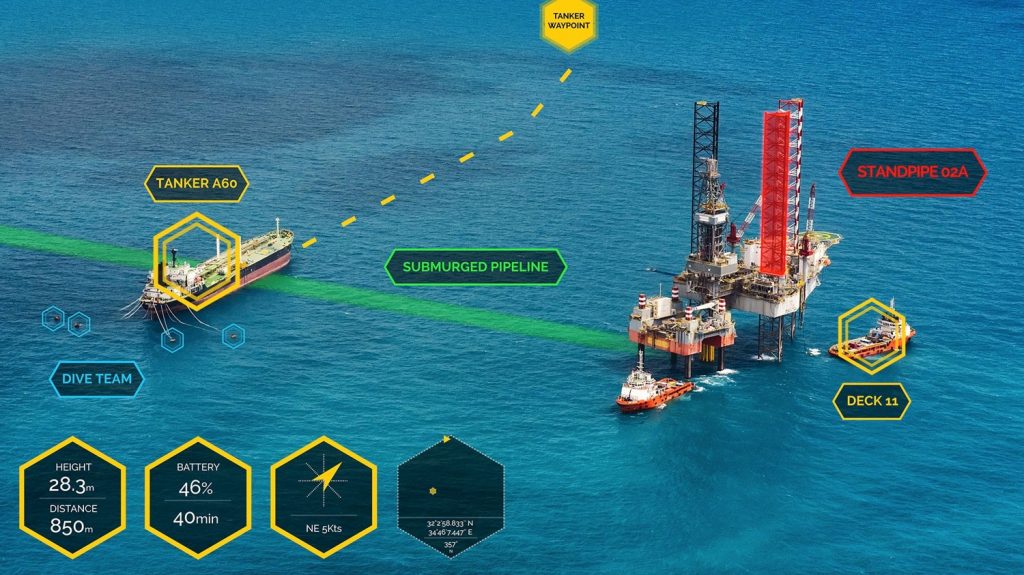
Edgybees first response. Courtesy
– FireDome, a cybersecurity company that provides home IoT vendors with highly specialized, continuously evolving software solutions.
– Gauzy, an Israeli company with offices in California, Germany, and Hungary that developed patented Liquid Crystal Glass (LCG) panels. Gauzy combines high-tech and low-tech by embedding film technology into raw materials, like glass, to allow for control of various forms of light, where the surface can be switched from opaque to transparent on demand. The former is ideal for projection and privacy, while the latter invites the outside world in. Images and videos in HD quality can be projected onto the LCG, potentially turning any such surface into a projection platform.
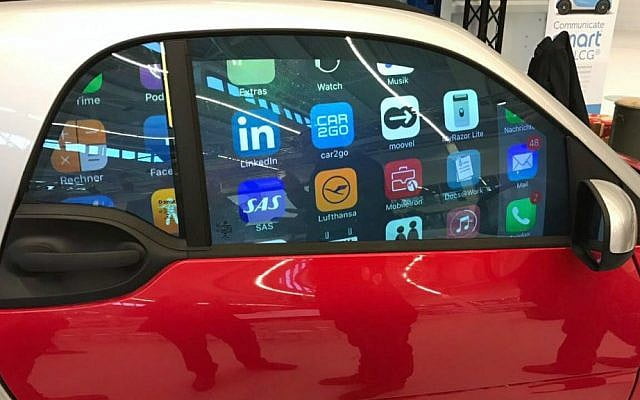
Ads projected in a car window using Gauzy’s LCG technology.
– Hexa, a Tel Aviv-based company that uses a unique AI framework with a complex computer vision algorithm to reconstruct 3D assets from ordinary photos. The tech focuses on fashion, furniture, and electronics.
– Lishtot, the award-winning Jerusalem startup that develops and builds products to detect for drinking water contamination and safety. Lishtot was named by TIME Magazine among 50 “genius companies” for 2018 and was selected among 15 “superhero” startups for NoCamels’ end-of-year review.
– Lumen, an Israeli startup founded in 2014 that developed a single-breath device that tracks the metabolism for better nutrition and overall health. Lumen is currently crowd-funding on Indiegogo.
– Nanoscent, a Haifa-based company that specializes in scent recognition technology, developing a sensor-chip and AI platform. Its first scent recognition app was for “match-making,” predicting a match likelihood based on skin scent.
– NFT Inc, an Israeli company developing an autonomous, electric Vertical Takeoff and Landing (eVTOL) vehicle that would function as a car and a plane for two-to-four passengers.
– Qlone, a startup that has developed an app, based on five patented technologies, that allows users to scan real objects, using a smartphone camera, “modify them in app and seamlessly export the result” to a number of platforms “for 3D printing, 3D sharing, 3D selling or to use as a 3D asset in your game or app.” The startup has already partnered with LEGO and number of other companies for product launches.
– Sixdof Space, a company that combines “optics, electronics, and algorithms in a single package for deployment in products currently in development in multiple industries – with an initial market focus on the VR market.”
– Superb Reality Ltd., a startup founded in 2015 that developed hand gesture control and motion tracking software solutions for AR and VR glasses and phones.
Sign up for our free weekly newsletter
Subscribe– Syte ai, also a Tel Aviv-based startup that “combines object recognition, artificial intelligence, and machine learning” to make images and videos become instantly shoppable.
– Talamoos, a company developing prediction platforms based on AI’s machine learning and Big Data to track behavior. The startup participated in the first cycle of a unique accelerator launched Israel’s Internal Security Agency (ISA, also known as the Shin Bet in Hebrew) and TAU Ventures, the investment arm of Tel Aviv University.
– TriEye, a startup founded in 2016 that is “developing technology to maintain smart and autonomous vehicle safety in adverse weather and low-visibility conditions. Its semiconductor design uses patent-pending technology that allows the production of shortwave infrared cameras at a fraction of their current cost.”
– Unbotify, which detects anomalies in human-device interaction using Machine Learning, in real-time on a specific user-flow.
– Waycare, a company founded in 2016 in Palo Alto, CA with offices in Tel Aviv that leverages artificial intelligence and predictive analytics for proactive traffic management optimization. It recently made headlines for helping the city of Las Vegas improve road safety and reduce vehicle crashes by some 17 percent on a stretch of one of its busiest highways.
– Woojer Ltd., a New York-based Israeli startup founded in 2011 that developed a “polyphonic haptic transducer that enhances music and audio.” The wearable devices (strap or vest) “accurately reproduce[…] bass frequencies and deliver[…] the emotional tactile sensation directly to the wearer’s body,” according to the company.
OurCrowd, a leading global crowd-investing platform for accredited investors based in Jerusalem (and a NoCamels sponsor), also has a startup pavilion at CES 2019 with exhibiting Israeli startups that include:
– TechSee, an AI-powered visual customer engagement company that recently raised $16 million in a Series B funding round. Founded in 2015, TechSee developed a visual engagement solution powered by artificial intelligence and augmented reality that aims to revolutionize the customer experience, enabling consumers to receive augmented reality-based visual guidance through their smartphones from a virtual technical assistant.
– Engie, a Tel Aviv-based startup founded in 2014 that developed an app that tracks car conditions and diagnoses malfunctions.
– C2A Security, a Jerusalem-based cybersecurity company that combines large-system security, artificial intelligence, machine learning, and hardware and software security to develop solutions for connected vehicles.
– Vayavision, a startup founded in 2016 that combines raw data fusion, AI and machine vision for a platform for autonomous vehicles that gives a complete environmental model outside a vehicle using a system of sensor technologies – LiDAR, radar, and camera. It recently raised $8 million in a seed funding round led by Viola Ventures, OurCrowd, and MizMaa Ventures, with participation from LG Electronics, and Mitsubishi UFJ Capital.
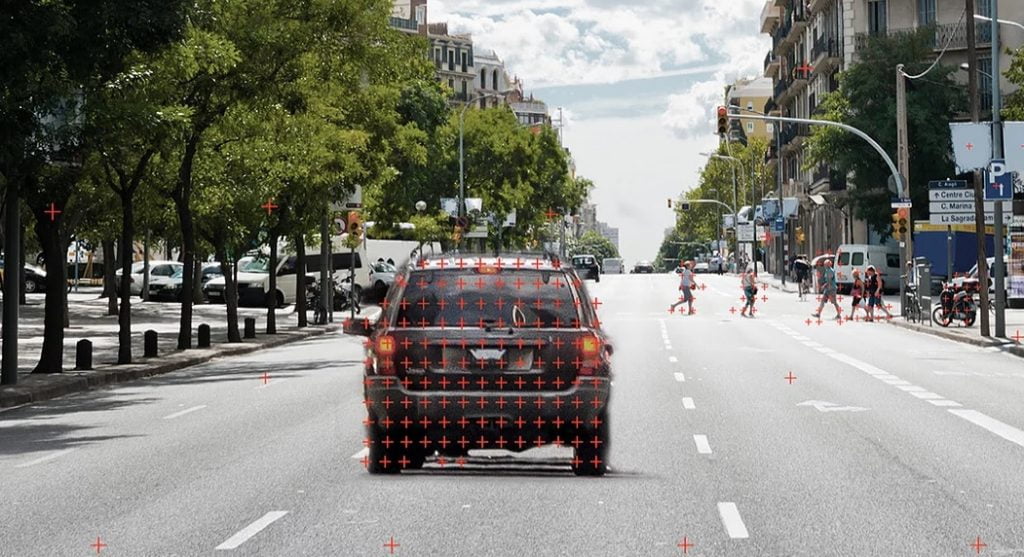
Screenshot from the Vayavision website.
Other Israeli companies, some of them very well-known, exhibiting at the show are:
– Mobileye, acquired by Intel for over $15 billion, a global leader in the development of vision and data analysis for advanced driver assistance systems and autonomous driving. The technology “reduces the risks of traffic accidents, saves lives and has the potential to revolutionize the driving experience by enabling autonomous driving,” Mobileye says.
– Arbe Robotics, a Tel Aviv company founded in 2015 said to be the world’s first to demonstrate 4D high-resolution imaging radar for the automotive industry. At CES 2019, Arbe is set to debut its Phoenix proprietary chipset, its automotive 4D imaging radar beta product. The Phoenix will enable the “evaluation and development towards production and full commercialization of 4D imaging radar for all levels of vehicle autonomy,” the company said in a statement. Arbe has offices in the US and China and recently raised $10 million.
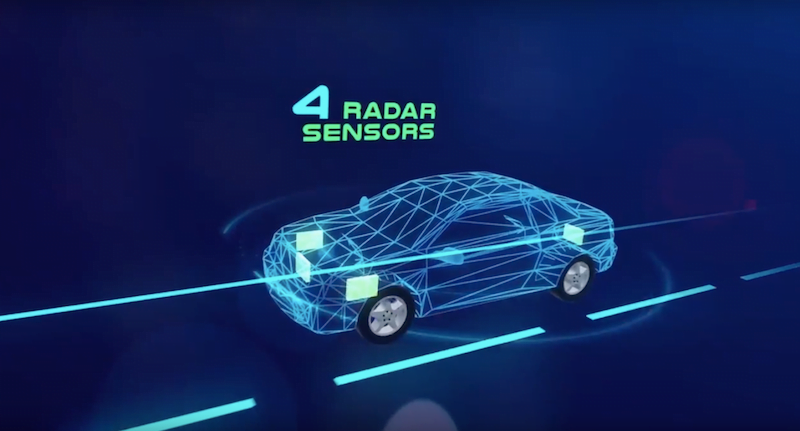
Arbe Robotics. Courtesy
– Karamba Security, a Hod Hasharon company with US offices that provides industry-leading automotive cybersecurity solutions for autonomous and connected cars. Security software products created by the company include Carwall and SafeCAN. Karamba is set to demonstrate live and autonomously-prevented cyber attacks on vehicles at CES 2019.
– Innoviz Technologies, a leading Israel-based provider of solid-state LiDAR sensors and perception software to generate a precise and constantly updating 3D map of a car’s surroundings. The company recently launched new headquarters in Israel and has ongoing partnerships with Chinese automotive Tier 1 solution provider HiRain Technologies, and BMW Group. Innoviz has raised $82 million to date with backers that include Aptiv, Magna International, Samsung, Magma Venture Partners, Vertex Ventures, SoftBank Ventures Korea, and 360 Capital Partners. Late last year, its product the InnovizOne was awarded the prestigious CES 2019 “Best of Innovation” honor.
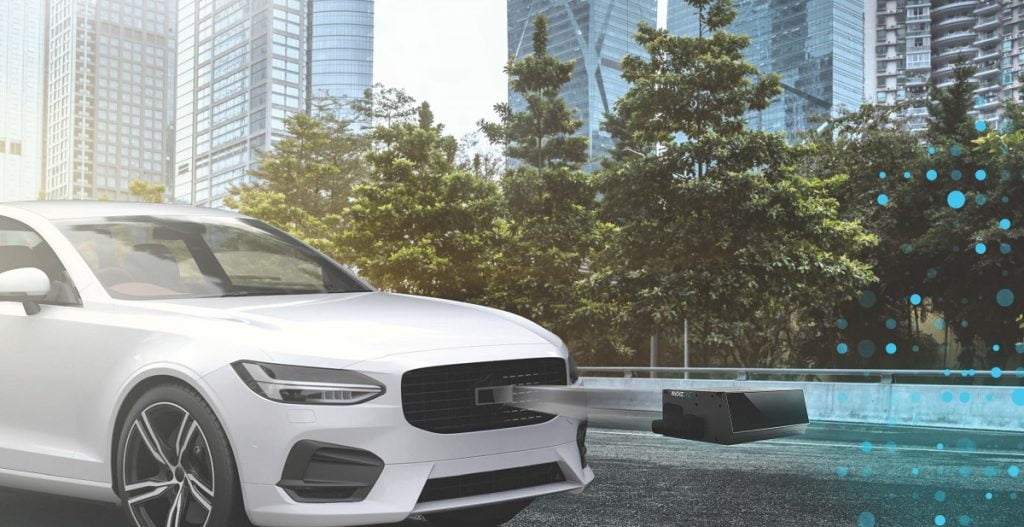
The InnovizOne. Courtesy of Innoviz
– Temi, the Israeli company behind the world’s first intelligent, mobile, personal AI robot. Temi recently raised a $21 million funding round. Users can control the Temi from any remote location in the world via the app and command different actions, from greeting guests at a hotel or restaurant to providing elderly medical assistance. The company is set to officially launch sales at CES 2019.
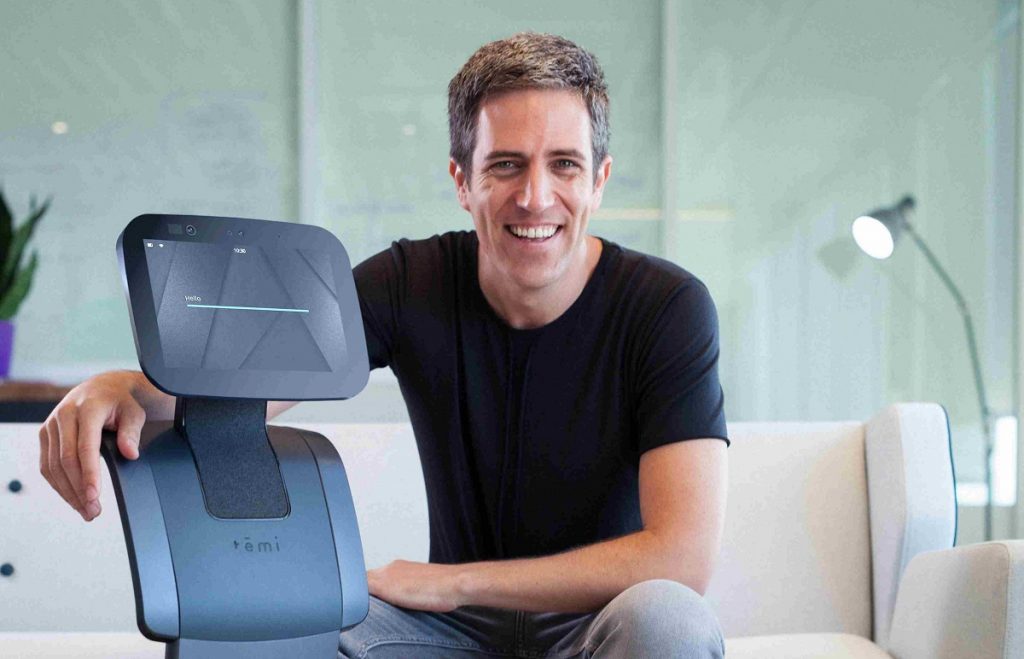
The ‘Temi’ robot with founder Yossi Wolf. Courtesy
– Mantis Vision, a provider of 3D depth capture technologies and 3D content sharing for a wide array of applications and devices, and a featured exhibitor at CES. Mantis Vision has developed an accurate Structured Light 3D capture method and projection as well as the ability to sync multiple depth cameras to create premium live depth acquisition and volumetric streaming. Mantis Vision said it will be joined onsite at CES with Digital Nation Entertainment (DNE), a Santa Monica-based company, to collaborate on combining 3D volumetric capture technology, studios. and live-streamed entertainment experiences to produce live AR/VR/MR content for the US entertainment industry.
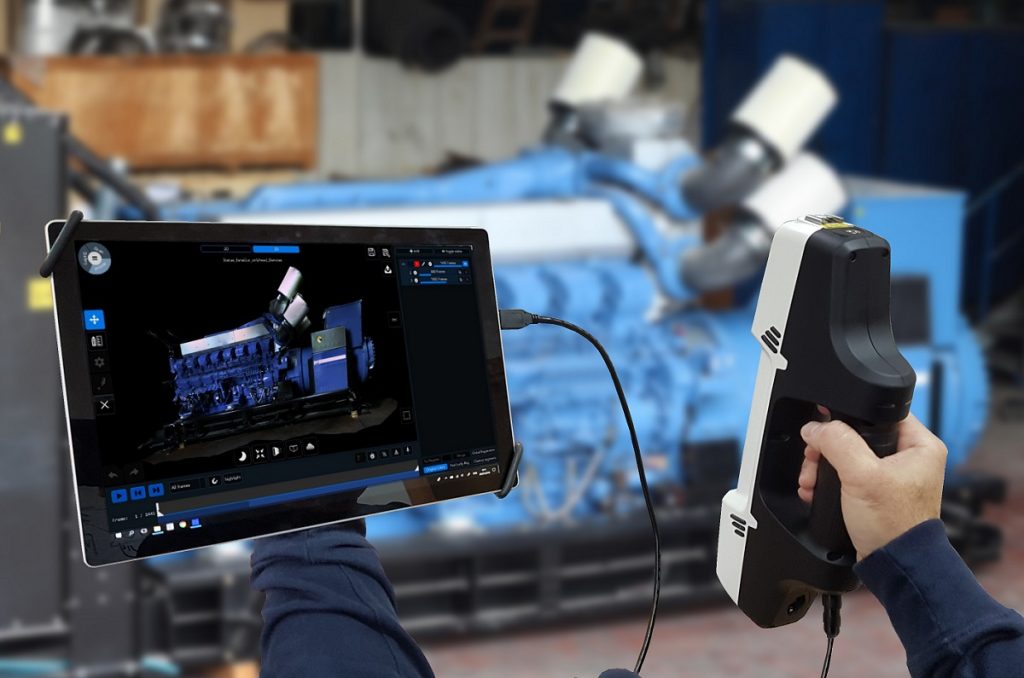
The Mantis Vision professional 3D scanner connected to a monitor. Courtesy.
– Vayyar Imaging, the Israeli startup that developed a revolutionary technology that can “see” through objects, even liquids, to deliver 3D images, with a host of applications. The tech is being used across industry sectors including automotive, construction, agriculture, smart homes, robotics, and medical care. The company says it will be “showing never-before-seen capabilities” at CES 2019.
– Valerann, a Tel Aviv-based smart road startup that recently raised $5 million in a seed financing round and partnered with German electronics giant Bosch and Jaguar Land Rover “to create a ‘holistic data marketplace’ to support connected and self-driving vehicles.” With its end-to-end system that uses different sensors, a unique algorithm, and a communication system, Valerann gathers critical data on road environment, including traffic flow and volume, major accidents and even surface conditions driven by weather. Valerann is participating at CES 2019 as part of a delegation from the UK, where it currently runs a pilot project.
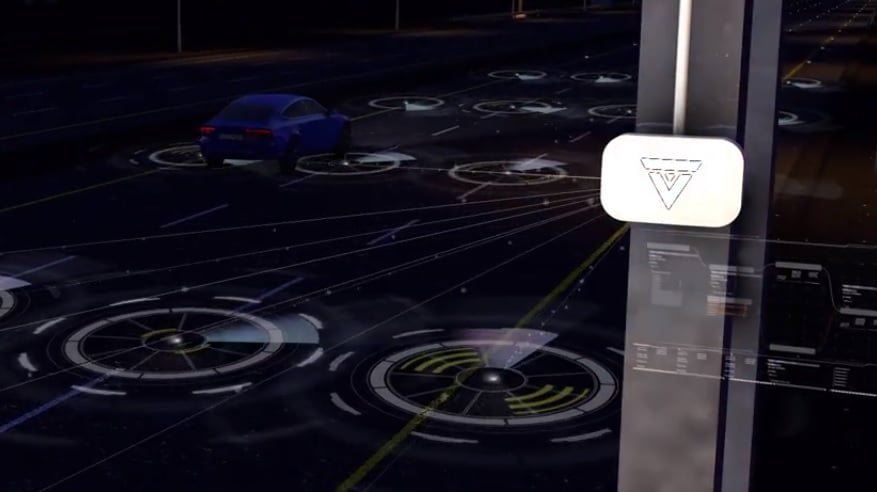
Related posts

Editors’ & Readers’ Choice: 10 Favorite NoCamels Articles

Forward Facing: What Does The Future Hold For Israeli High-Tech?

Impact Innovation: Israeli Startups That Could Shape Our Future




Facebook comments